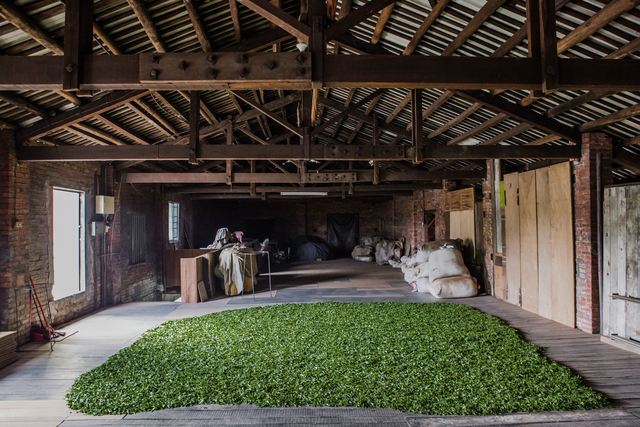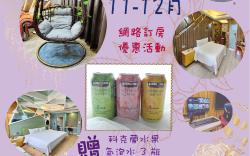Fu Yuan Tea Factory Introduction
In Taoyuan's Longtan, which has experienced the rise and fall of Taiwan's tea industry, there were once hundreds of tea factories during its heyday. Many factories have since closed or sold their land, leaving only a handful still operating. Mr. Huang Wenliang, the fourth-generation successor of Fuyuan Tea Factory, is deeply affected by this. The annual production of "black gold" peaked at 3 to 4 million jin, but has now dwindled to just one-tenth as the advantages of export have diminished. However, through perseverance, the tea factory has weathered the downturn, continuing a century-old tea fragrance and zealously promoting good tea culture. Walking along the old path to Fuyuan Tea Factory, one can enjoy the natural scenery of fields and hills, Hakka floral cloth on bamboo hats, and tea pickers bending over with bamboo baskets, creating a leisurely and pleasant pastoral scene of tea gardens. The founder of Fuyuan built the tea factory in 1949 using local materials and implemented mechanized mass production. Today, one can still see antique European tea processing machines operating continuously, with the thunderous sound of tea roasting echoing the historical trajectory of tea. When brewed, the tea releases a sweet cinnamon aroma, with a refreshing mint taste on the palate; the first sip of Fuyuan Tea Factory's signature tea - "Ruby" (Taiwan Tea No. 18) is truly astonishing, reflecting the dedication of the tea growers. The detailed tour within the tea factory allows visitors to gain in-depth knowledge of the tea production process. There are also unique teas like "sour lime tea" and "Oriental Beauty Tea" worth savoring. The well-known beverage brand Tea King produces its Japanese green tea at Fuyuan Tea Factory, with advertisements also filmed on-site. The tea factory offers activities such as tea picking, rolling cloth balls, rolling black tea, and DIY tea powder, allowing travelers to experience tea-making. In the rustic tea factory, visitors can learn about tea culture from master craftsmen and create their own flavorful tea drinks; every step in the process is crucial, and amidst the soothing fragrance of tea, one naturally releases the stress of a busy life.









































